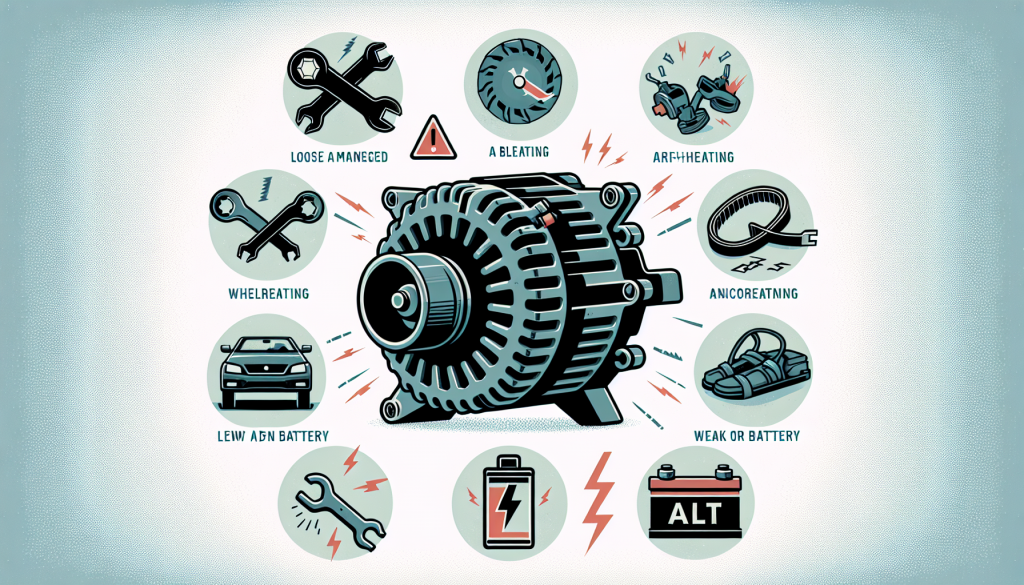Understanding Electrical Issues
Keeping your car running smoothly means knowing a bit about common electrical problems and why regular check-ups matter. Let’s break down the usual suspects behind car electrical failures and why staying on top of maintenance is a game-changer.
Common Causes of Car Electrical Failures
-
Bad Connections in the Wiring System: Ever had a loose wire mess up your day? Faulty connections in your car’s wiring can be a real headache and expensive to fix. For a deeper dive into diagnosing these issues, check out our troubleshooting electrical wiring issues.
-
Alternator Issues: Your alternator is like the unsung hero of your car, converting engine power into electricity. If it starts acting up, you could face battery problems and starting issues. Want to know more? Visit our page on common alternator problems.
-
Charging System Problems: A glitch in the charging system can leave you with a dead battery. Timely diagnosis and fixing faulty parts are key. For a thorough check-up, see our alternator testing services.
-
Battery Wear: A bad alternator can wear out your battery faster than you think. Get ahead of the game with our battery maintenance tips.
-
Electrical Distribution System: Worn-out brushes in the alternator or other distribution issues can cause your battery light to flicker on the dashboard. For more on this, explore our electrical system troubleshooting guide.
Importance of Timely Maintenance
-
Prevent Battery Wear: Regular check-ups and replacing faulty parts like the alternator can save your battery from premature wear. For a handy checklist, see our electrical system maintenance checklist.
-
Reliability of Alternators: Even though alternators are usually reliable, they can fail due to worn-out brushes or other issues. Regular checks can catch these problems early. For more tips, visit our alternator maintenance tips.
-
Avoid Starting Issues: Fixing alternator problems quickly can prevent starting issues and other headaches. Keep your car’s electrical system in top shape with our alternator replacement services.
By understanding these common electrical issues and the importance of regular maintenance, you can keep your car in tip-top shape and avoid costly repairs. For more tips and services, check out our electrical system maintenance services.
Signs Your Alternator is Acting Up
Spotting alternator issues early can save you from bigger headaches later. Here’s what to look out for to keep your ride in Ontario’s cities running smoothly.
Dimming Headlights and Dash Lights
Ever notice your headlights or dashboard lights getting dim or flickering? That’s a big red flag. When your alternator starts to give out, it can’t keep a steady voltage going to your car’s electrical system. This makes your lights act up (Firestone Complete Auto Care).
| Symptom | What’s Going On? |
|---|---|
| Dimming headlights | Alternator can’t keep voltage steady |
| Flickering dashboard lights | Voltage regulator might be shot |
If you spot these issues, don’t wait. Get your alternator checked out. Head over to our alternator testing services page for more info.
Weird Noises and Battery Problems
Hear something growling or whining under the hood? That’s not your car trying to talk to you. It could be your alternator or drive belt acting up. These noises usually mean the belt turning the alternator’s pulley is out of whack or the rotor shaft’s bearings are on their last legs (Firestone Complete Auto Care).
| Symptom | What’s Going On? |
|---|---|
| Growling/whining noises | Belt misaligned or bearings failing |
| Dead battery | Alternator isn’t charging the battery |
A dead battery can also mean your alternator isn’t doing its job. If it can’t charge the battery while the engine’s running, you’ll be left with a dead car. Need help? Check out our guide on how to test a car battery.
Slow or non-working accessories like windows or seat warmers? That’s another sign your alternator isn’t giving enough juice to your car’s electronics (Firestone Complete Auto Care). For more tips on handling these issues, see our electrical system troubleshooting guide.
Spot these signs early, and you can nip common alternator problems in the bud. For more maintenance tips, visit our alternator maintenance tips page.



